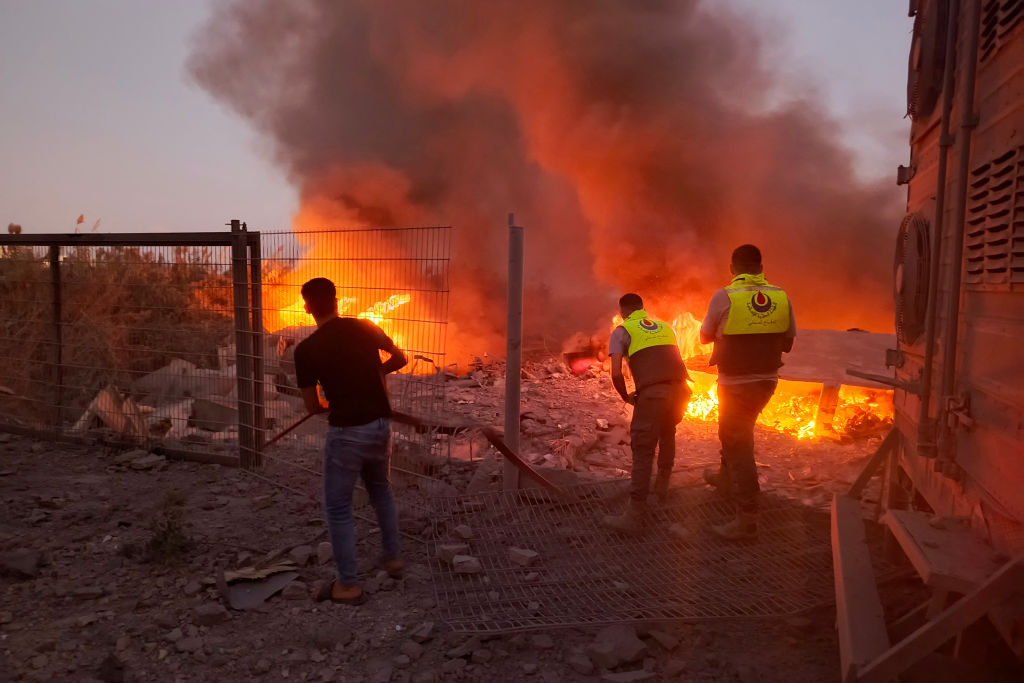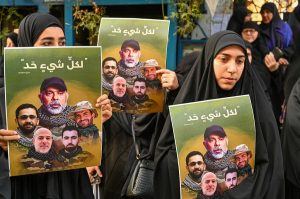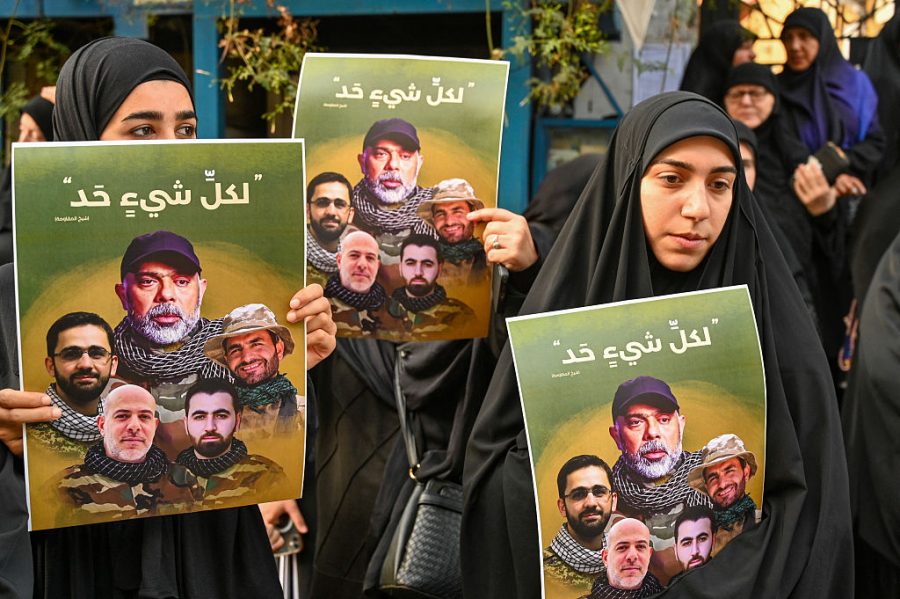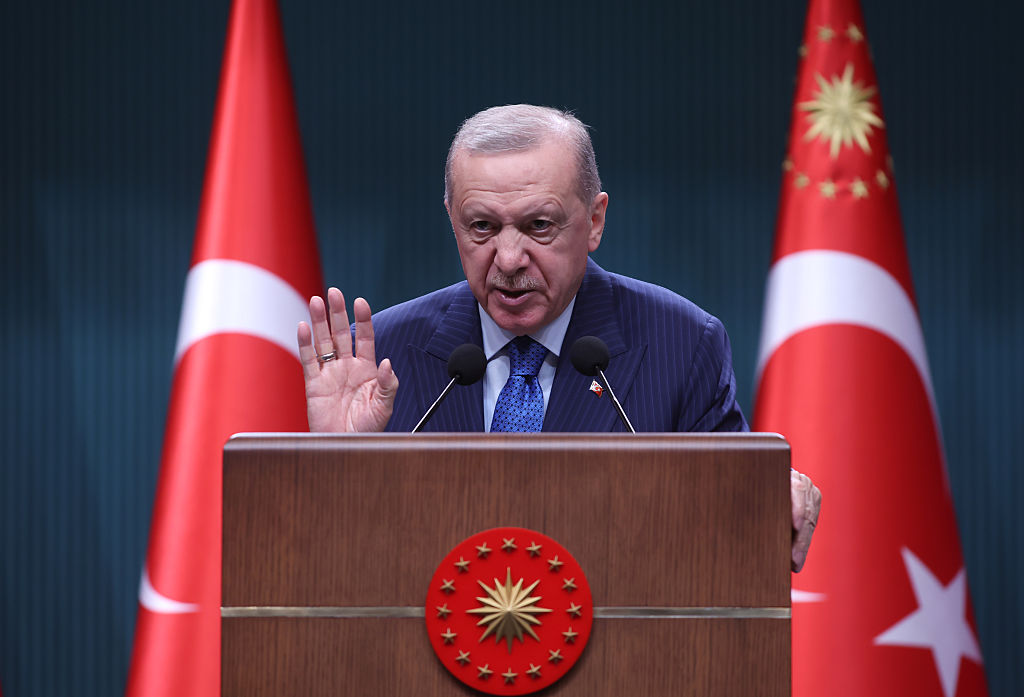The recent fighting between Israel and Hezbollah is a war that’s not yet officially a war, initiated by a political party without a mandate that takes its orders from Tehran, in support of a Palestinian party that few Lebanese care about.
Hezbollah was the jewel in the mullah’s turban
It is a decades-old conflict, an exhausting, deadly stalemate, but this recent escalation could prove to be decisive. There’s a chance Israel could finally deliver a dagger blow to Hezbollah. This would be a staggering achievement because the Iranian-backed Shia militant group controls many, if not all, of the levers of power in Lebanon, and has been a constant irritant to Israel for nearly forty years.
The optics don’t look good for either side. On Monday, nearly 600 Lebanese, mostly civilians, were slaughtered and over 1,000 injured in “precision” Israeli air strikes, allegedly given the green light by the Americans. Over 10,000 residents of southern Lebanon fled north to Beirut, just like they did in 2006, the last time Hezbollah and the Israeli armed forces went toe-to-toe. This time though, the residents of south Lebanese have had enough.
On Tuesday morning, I called my colleague Zeinab who lives in the town of Shemlan, a town perched on the hills south of Beirut. When she answered the phone she could hardly speak for exhaustion and anxiety. Her brother was trying to get out of the southern city of Tyre and she hadn’t heard from him in hours. “We are tired,” she told me. “We can’t take it anymore. I might need to leave the country.”
She is not alone. The Lebanese have been through the wringer in the past fourteen years.
The influx of 2 million Syrian refugees since 2010 has created social tensions and over-burdened an already creaky infrastructure. The collapse of the banking system in 2019 saw savings and pensions wiped out amid hyperinflation. Then the Beirut port explosion (ignited, allegedly by Hezbollah) on August 4, 2020 decimated a significant tranche of east Beirut. Where once a significant proportion of the population supported Hezbollah, through self-interest more than conviction, most have now reached the end of their long-suffering patience. The lack of violent retaliation on Hezbollah’s behalf has contributed to this.
Those few still drinking the Hezbollah Kool-Aid have been nonplussed, even angry about the lack of a robust response — and by “robust” they mean firing ballistic missiles in civilian areas of Israel. The murderous pager and walkie-talkie explosions spread fear and confusion among the party’s ranks and seemed to demand a like for like response.
Hezbollah’s supporters still look to their enigmatic leader, Sayyed Hassan Nasrallah, for salvation, but the view among many analysts and Middle East watchers is that Iran doesn’t want to waste its much vaunted arsenal of missiles on Gaza, which it already sees as a lost cause. Add to this the continuous and unhindered assassinations of key Hezbollah party officials and Beirut is beginning to wonder if this isn’t finally at least the beginning of the end for Hezbollah? Is the party reaching the end of what Nicholas Blanford, one of the world’s foremost experts on military capability, calls “its ever narrowing corridor of hubris?”
The mask really began to slip on February 14, 2005
Hezbollah’s origins can be traced back to the 1982 Israeli invasion of Lebanon, an operation designed to neutralize the Palestinian Liberation Organization, which had been using south Lebanon to conduct raids against Israel and had created what was seen by Israel and many Lebanese Christians, as a state within a state. Sound familiar? Israel’s mistake was to overstay its welcome and it soon found it had another armed group to deal with.
Indeed, Hezbollah started-off with a promising business model. At grass roots level it appealed to Lebanon’s Shia, bolstering self-esteem by positioning itself as defender of Lebanese sovereignty against Zionist occupation, while at the same time providing much needed health and educational services to grateful constituents.
But on a geopolitical level, it was a muscular adjunct of Iran’s Revolutionary Guard Corps, its militia-on-the-Med, ready to execute Tehran’s regional ambitions. Dedicated, disciplined, admired, of all Tehran’s assets in Gaza, Iraq and Yemen, Hezbollah was the jewel in the mullah’s turban. Everyone knew this, which is why Iran’s conspicuous lack of support now is so significant.
Only the naive truly believed what Hezbollah said about defending Lebanese sovereignty. In 2000, after Israel withdrew from the self-declared security zone it had occupied in south Lebanon since 1982, instead of laying down its weapons and entering mainstream politics, Hezbollah said it still needed a military force to liberate the Shebaa farms. The Shebaa farms was an obscure and unheard of patch of land on the Israeli side of the border, but which was once in Lebanon, or was it Syria, no one really knew for sure. It was clearly just an excuse designed to extend Hezbollah’s armed mandate but enough people bought into it.
The mask really began to slip on February 14, 2005 when party members were accused of killing former prime minister Rafik Hariri and twenty-one others in a massive car bomb in Beirut on the orders of Damascus. Then came the calamitous 2006 war with Israel, started after a botched raid by Hezbollah to kidnap Israeli soldiers went wrong. The outcome, after one month of heavy fighting, was declared a “divine victory,” by Nasrallah, even though 900 Lebanese civilians died; one million were displaced, and $3.5 billion in material damages were incurred.
It was actually this conflict which should have militarily been the end for Hezbollah. But Israel try to do it on the cheap and was fought to a standstill. But Hezbollah couldn’t help but show its true loyalties. In 2008, emboldened by its newfound martial fame, it staged an attempted coup on the streets of Beirut, the first time the party had turned its vaunted weapons on its own people.
Then Hezbollah joined the Syrian civil war on the side of the Assad regime and became fully engaged in the business of killing fellow Muslims. This was the final proof that it was more regional enforcer than resistance movement.
If it is the end, Hezbollah will have followed in Israel’s footsteps. Michael Young, the Lebanese political analyst, told me over twenty-four years ago as we drove through south Lebanon in the wake of the Israeli army retreat, “The very nature of Lebanon and the Lebanese makes it difficult for any one sect to dominate. The Christians and Sunnis have discovered this and eventually the Shia will discover it too.”
This article was originally published on The Spectator’s UK website.


























Leave a Reply